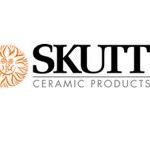Podcast: Play in new window | Download
Chef David Mork & Brett Binford | Episode 402

This is a little different. The feature guest is Chef David Mork who is going to be talking about the Kiln to Kitchen show. It was a discussion with David that kicked off the idea of furthering the Farm to Table movement by getting the tableware to be made from local potters. The pictures on this show notes page are of David’s food from his restaurant, Lapellah.

SPONSORS


Number 1 brand in America for a reason. Skutt.com

For all your ceramic needs go to Georgies.com

Paul: David you are a successful restaurateur and chef and you have two restaurants. What is your final decision making process for what you bring into your restaurants?
It just has to be something that I believe in and I feel good about. I fell like I try to make decisions first and foremost based on making a difference. It has to make sense to me in terms of what feels right. Then of course there are the secondaries and the financial piece. I like to dream so it’s got to feel right.
Paul: David just mentioned something about a dream. You are a visionary Brett. I see it every time I talk to you. Give me a nutshell vision from your perspective for Kiln to Kitchen.
Connecting potters and restaurateurs. It is the idea of collaboration, but really the cross pollination of the restaurant and the foodies to the artists and the mud people.

One more question for you Brett. Do you think it’s realistic to be able to compete with China, Spain, or overseas to be able to produce for restaurants?
Yes, absolutely. I think it feeds off what David is saying here in that it is about believing in the relationships that you make. I see it more and more everyday, locally in Portland, Regionally in the Pacific Northwest, and nationally in the USA. It’s that we are all looking for those stronger relationships and things we can really stand behind instead of something that is made by a nameless, faceless person that maybe doesn’t care about what they do, and supporting people that are passionate about what they do. But it comes with education and showing people how this is done and that is why I feel really passionate about this project because that is what it is going to take.
How much are restaurants willing to be educated, David?
Look, we are not talking about this becoming the mainstream, this is for everybody. I mean this is something that is already happening on a really small scale in this country. We are having a conversation about how do we put it out there in a larger format and maybe an easier format for people to learn about. If you are talking about the right restaurants then they are very willing to be educated. It comes back to being curious and driven. It isn’t for fast food places, this is for a population of restaurants that really care about what they are doing. You are seeing it in every facet of restaurants right now from craft spirits, beer, even natural wines, I mean we care about every aspect. It’s not just food. This table that we are sitting at right now was made from a locally sourced tree by craftsman in Portland by a local designed. So we care about all the details.

For you again David. Why does making a difference in the world matter so much to you?
Oh man, I don’t know if I can articulate an answer for that. Why wouldn’t it matter, Paul? Shouldn’t we all be doing that? I know that sounds maybe overly optimistic but it should be a direction that we are all trying to take in this world. Look, there is enough things going on in this world that are terrible and ugly, we should all be doing our little part to make a difference even in just a few persons lives.
Brett I have a question for you and your involvement in the ceramic community? Why do you care that other potters are successful?
Again, a hard one to articulate. I don’t think I can do as good as David did. I feel like we all should succeed. I guess when I think about the ceramic world from childhood it was something that helped me get out of adolescence and get out of trouble and make something for myself in the world and it really was that community I became a part of that nurtured me to become part of who I am today. So it is the building of the community and it ripples out beyond the ceramic community and helps others.
Paul what brought you to be so passionate and why do you do everything you do?
I will give you two reasons why. I love people, people are amazing. And I have told the story once when I was in the middle of my cancer treatment and I didn’t have any money for Christmas and one of things we get is honey baked ham every year. I went to a Honey Baked ham and they raised the prices and I was short ten dollars. Not that I didn’t have it, I just couldn’t afford the extra ten bucks. The lady in front of me after she buys her ham she turns to me and hands me what is left of her gift certificate and when I used it it was exactly the ten dollars I needed. I paid for my ham and I went and I caught up with her and told her that she made Christmas doable. We hugged and cried. I love people. I have been treated way too well in this life. Secondly, I love ceramics. I am not even all that good at it, but man I love it. So the Potter’s Cast is a celebration of my being alive and I can’t believe the impact it has made.

David asking: What would be your end goal for Kiln to Kitchen? I am going to ask it of both of you.
Paul: It is connecting potters to success. I want potters to find a pathway to success. They can define success however they want to but becasue I am a business guy I define success with sales. I want potters to make sales. And I also love the idea that a restaurant loves to present on beautiful things. I would like for a restaurant to buy something that they need already that would enhance their display.
How do you measure that success?
Paul: As I said just a moment ago, I think of sales. That is just the way I think. Simply put, I think success is getting what you want. I think it involves sales, but someone else might define it differently.
Brett: Funny I just gave a talk and most of the content was about how we don’t have to define success monetarily. It is about the relationships, how much time we spend in the work place, I have worked in restaurants and in the kitchen it is family. It is the same way I think of my studio and my employees. Working with people that are great and opening up to a community and being embraced by the community and obviously financially. You need to have means to keep going to be comfortable however you define that. I was going to say the same things you said about goals for Kiln to Kitchen. I was going to say it maybe simpler, just connecting people, because I think food connects people.
Contact:
Instagram: @lapellah
This has to be my favorite episode yet! I enjoyed everything about it. It’s facinating to hear a chefs perspective. My son, who’s 9, has entertained the idea of becoming a chef. He and I listened to this episode while making pottery together today. It was like life was coming full circle, putting all these symbiotic connections we humans have with each other into perspective. My sons eyes lit up when I said I’d make dinner ware for his future restaurant. I love listening to your show, Paul! Keep up this labor of love!
What a great story. I am so happy to hear this. It is so great to dream with our children. Lots of love to you.